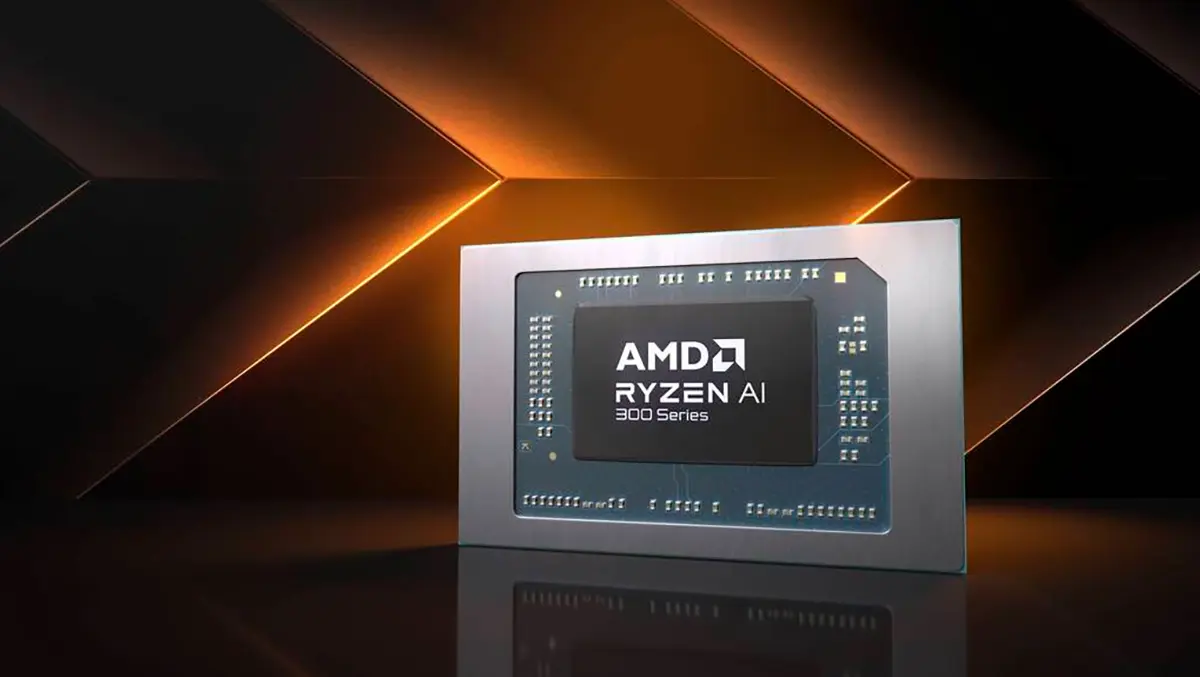
AMD to turbocharge AI in laptops with Zen 5 Ryzen processor launch
AMD has unveiled a new series of AI-focused next-generation Zen 5 Ryzen processors. The company introduced the AMD Ryzen AI 300 Series processors, which feature the world’s most powerful Neural Processing Unit (NPU) for advanced AI computing on laptops. At the same event, AMD also revealed its Ryzen 9000 Series processors for desktops, positioning the brand as a leader in performance and efficiency, particularly for gamers, content creators, and prosumers.
The AMD Ryzen AI 300 Series processors, based on the AMD XDNA 2 architecture, offer up to 50 TOPS (trillions of operations per second) of AI processing power, surpassing the requirements for AI PCs and delivering three times the AI engine performance compared to its predecessors. These new processors come equipped with up to 12 high-performance CPU cores and 24 threads, along with 50% more on-chip L3 cache memory than the preceding Zen 4 processors. This significant upgrade is intended to enhance the capabilities of ultrathin and premium laptops, making them more adept at handling AI tasks locally with improved battery efficiency.
Alongside this, AMD's new Ryzen 9000 Series desktop processors, built on the latest Zen 5 architecture, show an impressive average of 16% better IPC (instructions per clock) performance compared to the prior generation Zen 4 architecture. The top-tier Ryzen 9 9950X stands out as the fastest consumer desktop processor in the world, according to AMD's internal testing. These processors are designed to cater to gamers seeking high frame rates and smooth gameplay, as well as professional content creators requiring high performance for 3D modelling, animation, and product visualization.
AMD’s new processors also bring enhancements to graphics capabilities. The Ryzen AI 300 Series features the latest AMD Radeon 800M Series graphics architecture, promising fluid frame rates and optimal gaming experiences. The desktop processors will benefit from the integration of new AMD X870E and X870 chipsets, supporting technologies such as PCIe 5.0, DDR5, USB4, and WIFI7, ensuring that new platforms remain relevant through 2027 and beyond.
The introduction of AMD's Ryzen AI 300 Series and Ryzen 9000 Series processors comes with strong support from industry leaders. Companies like Acer, ASUS, HP, Lenovo, and MSI have announced plans to release AI PCs featuring the new AMD processors, highlighting their commitment to AI-driven technologies. Microsoft CEO Satya Nadella praised the collaboration with AMD, emphasising the transformational potential of AI across various platforms, from PCs to custom silicon for Xbox.
The AMD Ryzen AI 300 Series processors aim to deliver unparalleled performance by efficiently addressing local AI workloads and enhancing productivity and creativity in devices such as the ASUS ROG Zephyrus G16, HP OmniBook AI PC, and Lenovo's AI laptop lineup. Their versatility is highlighted by their application across a range of laptops, from gaming and professional use to small and medium-sized business solutions.
For the desktop segment, the release of the Ryzen 5000 Series, including the Ryzen 9 5900XT and Ryzen 7 5800XT, continues AMD’s support for the AM4 platform. These new additions are projected to offer robust performance for DIY enthusiasts and system integrators.
Additionally, AMD has announced the Radeon PRO W7900 Dual Slot workstation graphics card, tailored for developers engaged in high-performance AI workstations. This card ensures they can perform AI development locally. The Radeon PRO W7900 delivers enhanced performance per dollar and fits larger AI models on a single GPU framebuffer, making AI development more accessible.
AMD’s latest offerings underscore its commitment to advancing computing technology, from cloud and edge computing to client devices. By pioneering in AI integration and processor efficiency, AMD continues to offer compelling solutions for a broad spectrum of users, promising a future rich with AI-enabled computing experiences.
.webp)

